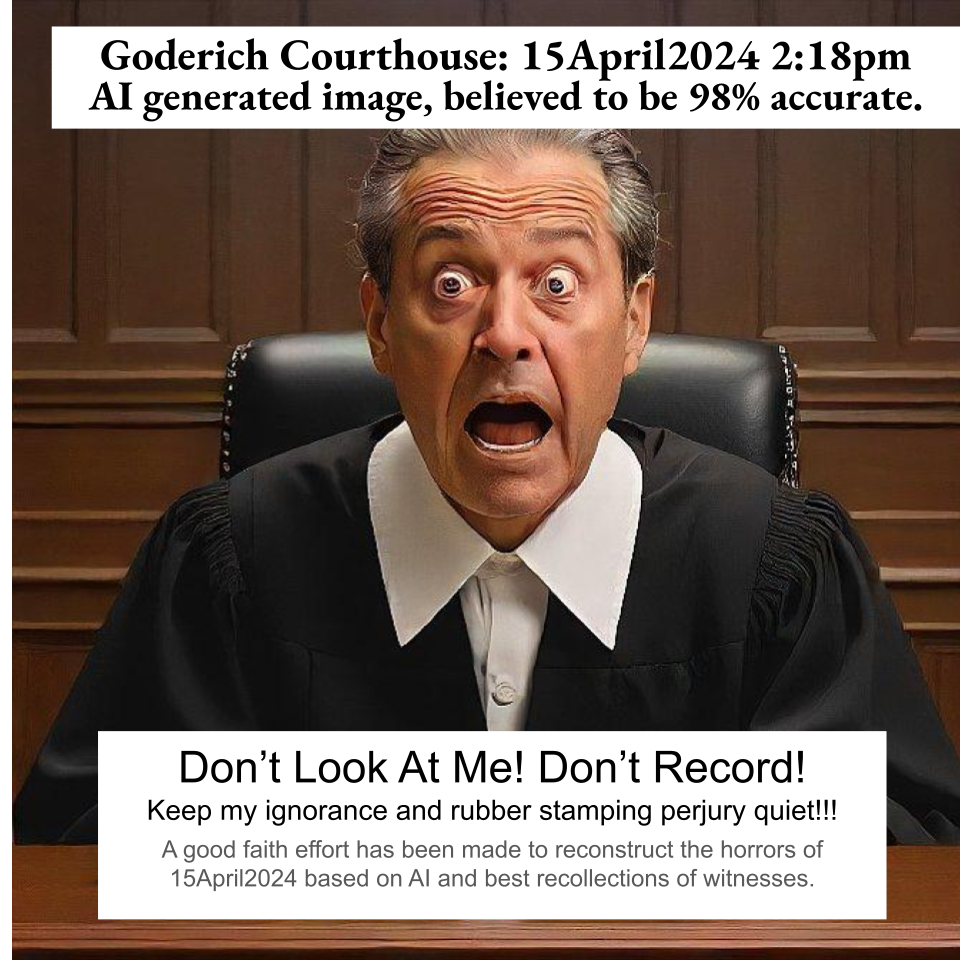(Goderich, On) 15April2024 a crushing blow to journalism, free speech and Charter Rights was dealt by Justice MacDonald. By banning reporters, victims, lawyers, or police to video record any portion of the court proceedings for accuracy or for their protection, MacDonald has essentially instituted an illegal media ban.
The chilling effect on democracy that would result from such a restriction could be significant. Without the ability to record and document court proceedings through video or audio, the public’s access to important information about the legal system would be limited. This lack of transparency could lead to a decrease in public trust and confidence in the judiciary, as citizens would have to rely solely on written accounts or summaries of court cases, which may be incomplete or biased.
Furthermore, journalists and media organizations may be hesitant to report on court proceedings for fear of being held liable for any inaccuracies in their reporting. This could lead to self-censorship and a reduction in the amount of information available to the public about the legal system and the administration of justice. In this way, the restriction on recording court proceedings could hinder the media’s ability to serve as a watchdog and hold the judiciary accountable for its actions.
Overall, the restriction on video and audio recording of court proceedings could have a chilling effect on democracy by limiting transparency, impeding the public’s access to information, and hindering the media’s ability to fulfill its watchdog role.

